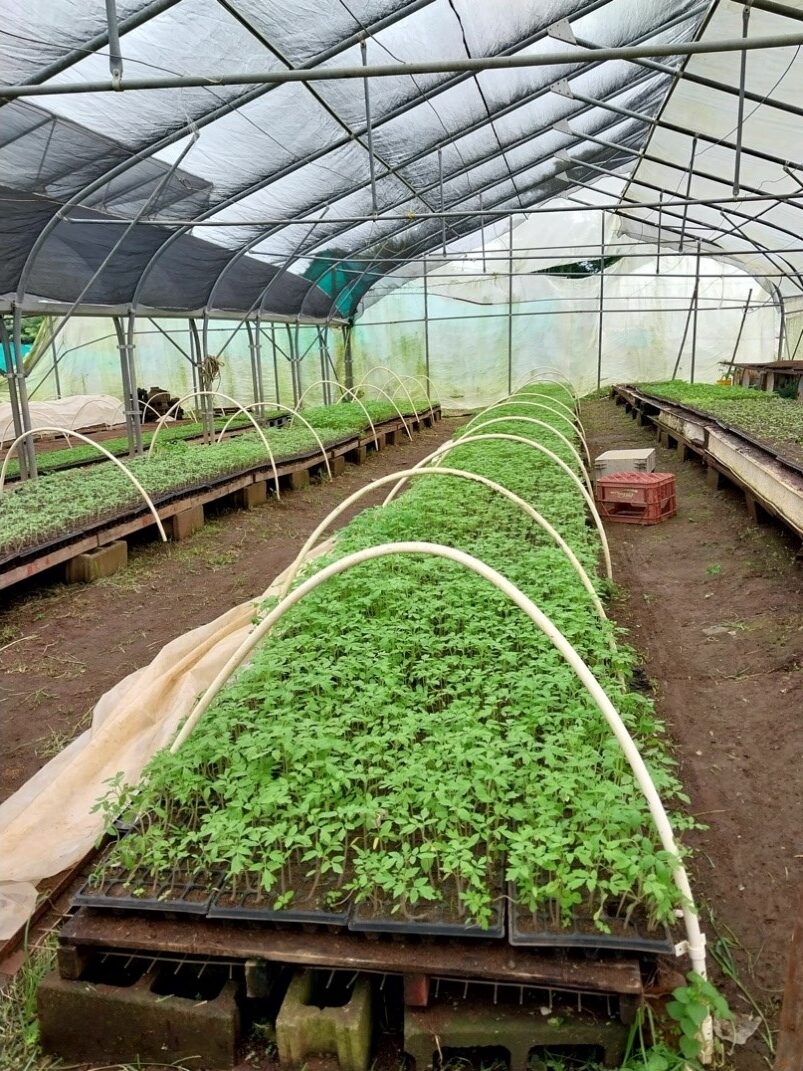PHAMA Plus partner Melesisi Finefeuiaki of Lotopoha Export Trading uses mulch and intercropping for better soil health on her taro farm in Tonga.
World Environment Day 2024 focuses on restoring land, addressing desertification, and building resilience to drought.
“Land sustains all forms of life through an ecosystem. Intensification of agricultural practices, however, has been a key driver in the loss of biodiversity and has enhanced the impact of climate change,” said PHAMA Plus Environment and Climate Resilience Manager Dr. Rupantri Raju.
“Land degradation also impacts on indigenous populations who depend on land and the nature around it for food and their livelihoods.”
In the Pacific region, farmland is being degraded as a result of unsustainable agricultural practices, driven by market demand. Examples of these practices that are making the land vulnerable, include the overuse of chemical fertilisers, excessive deforestation and monocropping.
To address this, the Australia and New Zealand funded Pacific Horticultural and Agricultural Market Access (PHAMA) Plus Program is testing several climate-resilient and sustainable technologies through its partnerships with partners in the private sector and government in 10 Pacific Island countries.
Using biodigesters to restore soil health
In Fiji, PHAMA Plus is piloting the use of low-cost biodigesters to improve soil health on taro farms and to provide clean cooking gas for farmers.
Intensive taro farming in Fiji and in other parts of the Pacific has caused a significant decline in soil fertility. The excessive use of synthetic fertilisers and pesticides is also causing long-term damage to the soil and the ecosystem.
This over-exploitation of soil and excessive long-term use of agrochemicals may eventually lead to desertification, which is a process that may permanently degrade fertile land.
Organic fertiliser from biodigesters can be a sustainable approach to improve soil fertility and to pilot a circular business model in the taro sector.
Improving access to fresh water for agriculture through solar desalination
In Tonga, PHAMA Plus is collaborating with the Australian National University to trial a solar desalination unit for root crop farmers.
PHAMA Plus is also trialling a smart drip irrigation system using groundwater with one of its partners in the watermelon sector.
The technology uses sensors to monitor soil health and water supply for the drip irrigation system and it will be the first trial of its kind in the country.

A protected cropping system is a new technology in use by a farmer in Tavua, Fiji to increase the yield of high-quality crops. It limits the use of inputs such as fertilisers and reduces damage to land.
Long-term solutions
There are several ways in which agriculture can be made more sustainable to restore land, address desertification, and build resilience to drought. These include
- promoting regenerative agriculture
- providing equitable access to land and markets for marginalised communities and smallholder farmers
- investment, research and innovation in sustainable farming
- understanding indigenous peoples’ food systems
- developing climate-resilient crop varieties
- investing in restoration of degraded ecosystems.
PHAMA Plus is working with partners across the Pacific region to address these issues, on this World Environment Day 2024.
ENDS
For more information, please email PHAMA Plus Manager, Environment, Climate and Resilience – Dr. Rupantri Raju at r.raju@phamaplus.com.au
